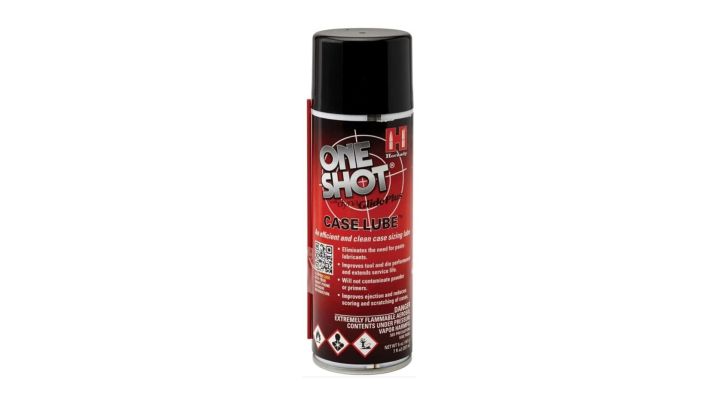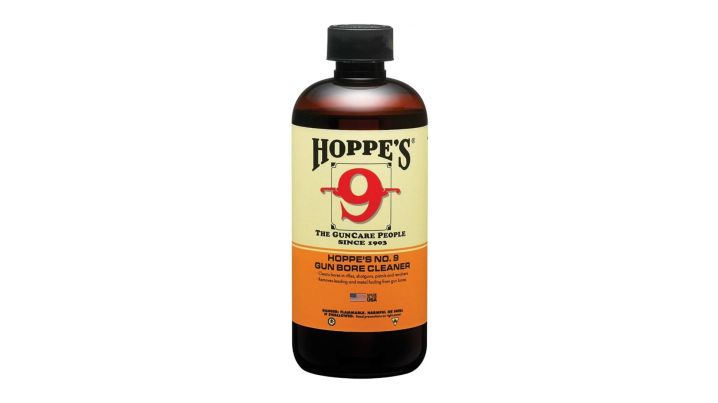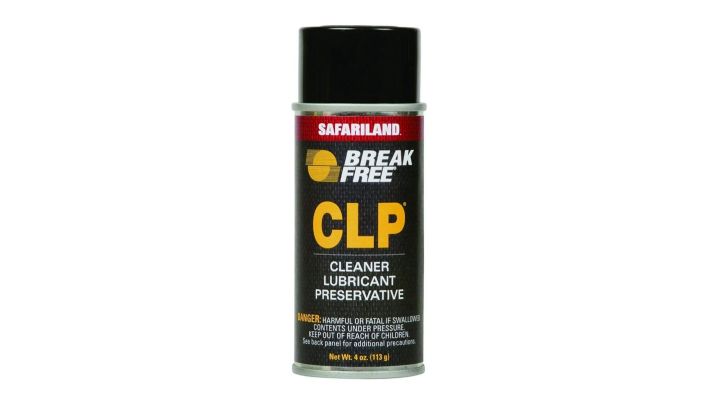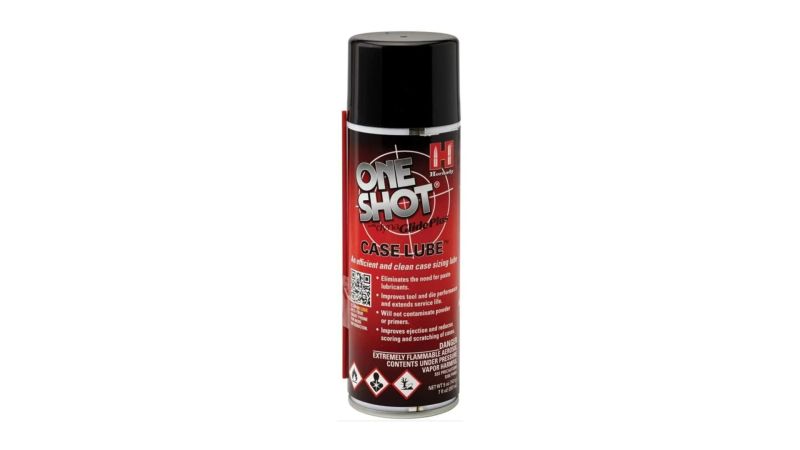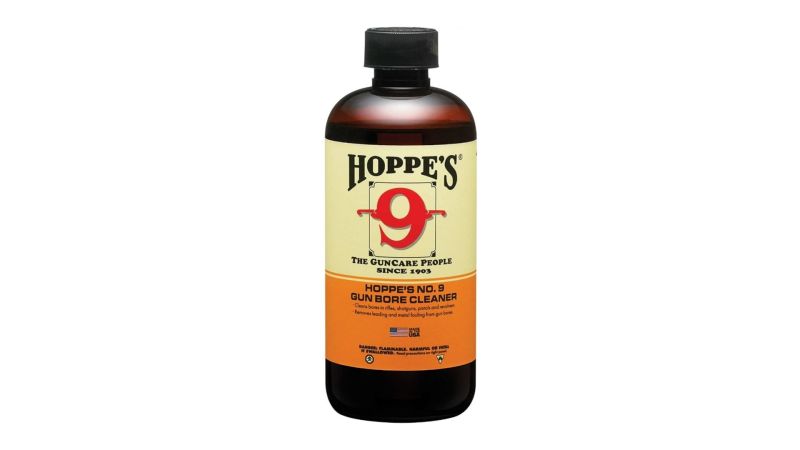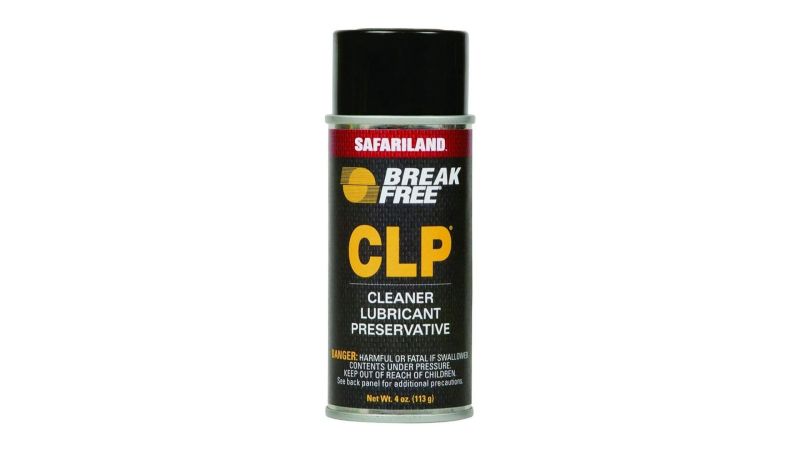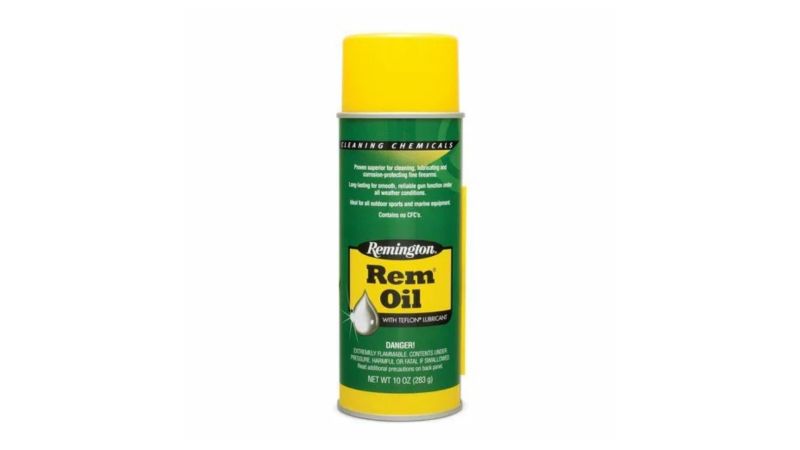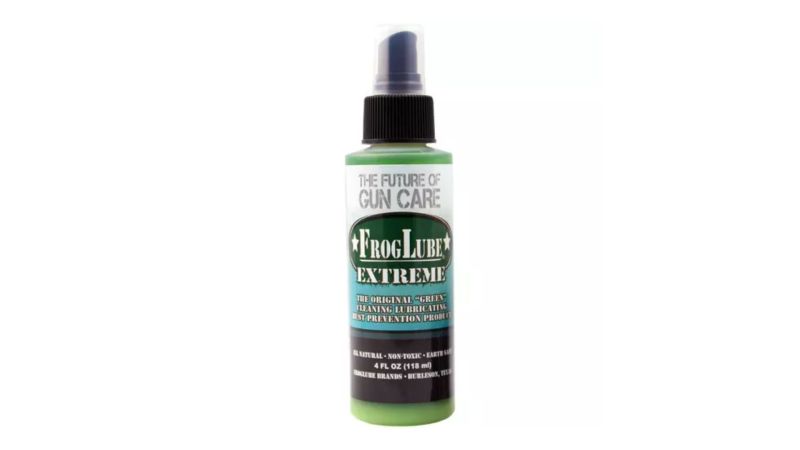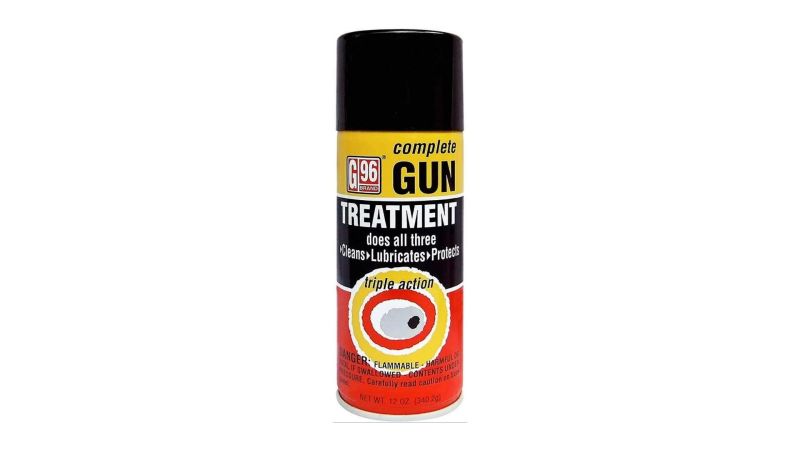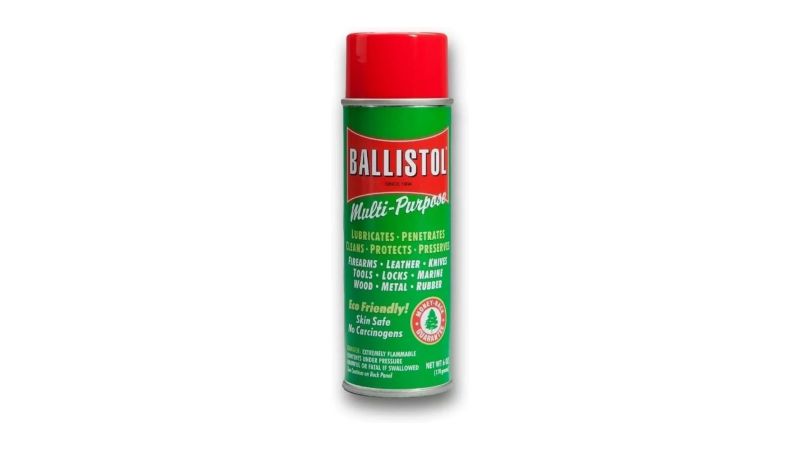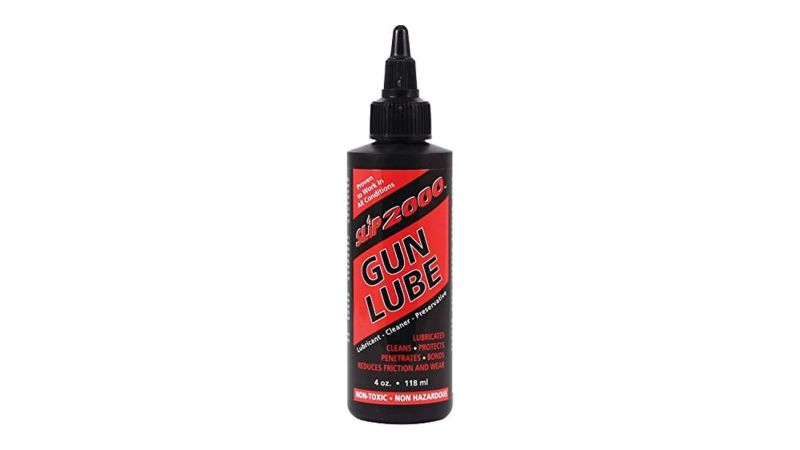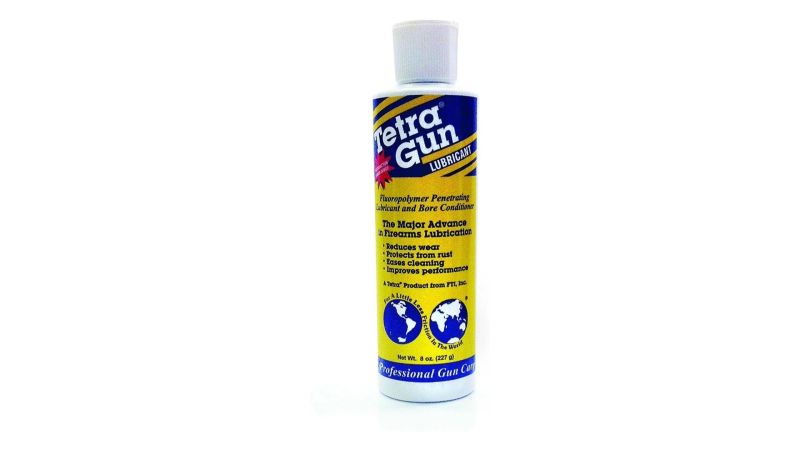We may earn revenue from the products available on this page and participate in affiliate programs.
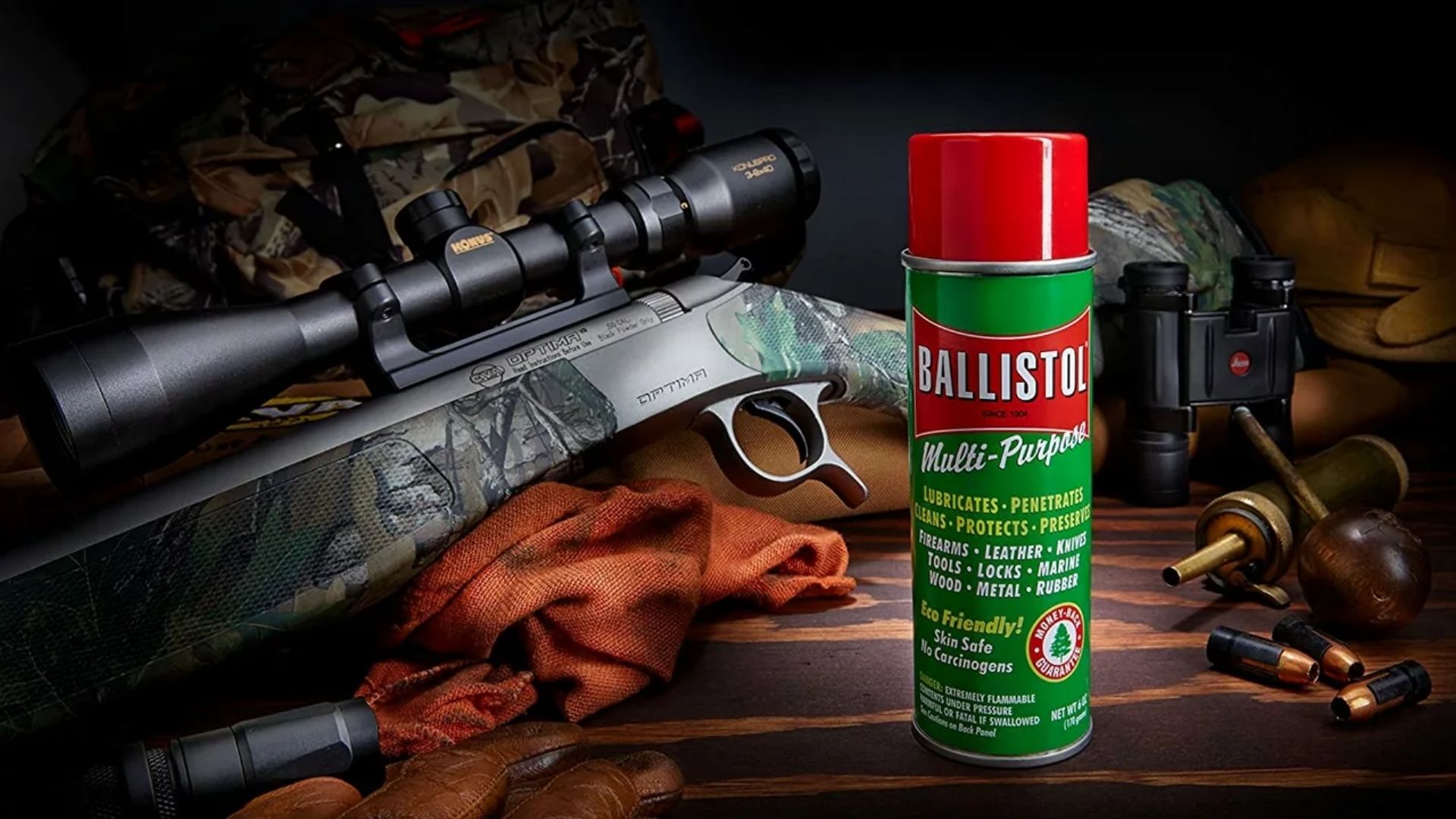
You count on rifles, pistols, and shotguns to work when the time comes, and that means using the best gun oil. This seems to be the age-old question when it comes to firearms: which type of oil or brand to use. Sure, people bicker over which caliber is the best all arounder or the proper technique to fire from certain positions, but everyone who has cleaned a gun has asked themselves if the oil they are using is the best. When I was on active duty in the Marine Corps, it was a no brainer: We used the free generic cleaner, lubricant, and protectant issued to us. Since leaving the military, I’ve searched for the best so my guns are fully operational.
Picking the right gun oil boils down to intended use and desired performance. All-in-ones like the military-issued CLP sound appealing because of the convenience they offer. Are they as good as specialized oils or solvents, though? Let’s break things down so you don’t get stuck when you go to buy your next gun oil.
Best Overall
Hornady One Shot Case Lube
Best Solvent
Hoppe’s No. 9
Editor’s Choice
Break-Free CLP-2
Best Value
Remington RemOil
Most Economically Conscious
FrogLube
Best for Cold Weather
G96 Brand CLP
Best Multipurpose
Ballistol Multi-Purpose Oil
Honorable Mention
Slips 2000
Honorable Mention
Tetra Gun Lubricant
Why you should trust us
My personal experience with firearms and gun oils has been around 15 years. From my time in the Marines until now, I’ve personally used a variety of gun oils. I’ve also built friendships with experts and professionals who have developed their own opinions and perspectives. For this article, I reached out to gunsmiths, professional competitive shooters, SWAT officers, special operations warriors, and many more, to consolidate their experiences with mine. This is what I combined with detailed research to offer you these recommendations.
Types of gun oils
There is more than one way to classify gun oils depending on use, delivery, and materials used. In the spirit of simplicity, I chose to classify the oil by its intended usage.
Solvents
If you’re unfamiliar with solvents or have never heard of a solvent before, think cleaner. These are chemicals that dissolve other substances, specifically for cleaning purposes. When you fire a round, the carbon emitted from the burning of the gunpowder will accumulate in almost every nook and cranny of your gun. The buildup can be tough to remove, so using a solvent or soaking the parts in one will help dissolve the carbon buildup and make cleaning easier.
Lubricants
Nobody likes friction — it burns and is uncomfortable. Guns don’t like it either, as bare metal to metal action has the potential to cause critical failures. We’re talking broken pieces, worn down parts, or worse. To ensure the action works properly and smoothly, all you have to do is apply lubricating oil. These do not clean and are solely meant to prevent unwanted friction and heating of parts.
Protectants
Whether you’re storing your gun for months at a time or shooting regularly, it’s important to have oil that protects the metal from rusting or damage. These oils are designed to enter the pores of the metal or wood and fill them up. Some oils harden a little, a process called resinification. Filling the pores is what protects the material from oxidation or other chemicals, like skin oil, that break it down over time.
Key features of gun oils
When we talk about the key features of gun oil, I look at the delivery system. Each oil has a specific use, but how you deliver that oil is important to look at. This is a bit more a feature of the container, but the delivery method could change how you utilize the oil.
Aerosol
For anyone unfamiliar with the term, an aerosol is essentially a liquid stored in a pressurized container, and it sprays as a mist or foam. This is what Lysol and WD-40 are. Many gun oils can be found as an aerosol and it works great. Some containers have little straws to attach for localized application, which works as long as the straw stays in. Spraying without a straw normally gets messy since the spray covers a larger area. Ideally, you’d use this form of oil when cleaning large weapons or spraying all the components when taken apart.
Dripper
You’ve probably seen the little half-ounce or one-ounce bottles of gun oil with long, pointy caps and wondered what they were. Or, you’ve used one and are laughing at me for having to explain this. Either way, using a dripper bottle is awesome for pinpoint delivery of essential gun oils. The smaller nozzle prevents overflow while trying to apply to small parts or openings in the guns. These are also great for range bags or cargo pockets since they’re not very large.
Wipes
Several gun oil brands have become available in presoaked, prepackaged wipes. It’s like Clorox wipes, but for guns. This delivery system is rather convenient for wiping down the exterior of a gun, as well as the surface of components or bolt faces. These wipes are rather limiting though, as they’re only good for one use and can only reach surfaces.
Bulk
Like most products, gun oil can be bought in large quantities. Buying in bulk is better-suited to professional shooters and gunsmiths rather than casual shooters or hobbyists. That being said, if you buy in larger quantities, you tend to get a better deal. One advantage to this is having the amount to be able to soak components or whole firearms. Submersive cleaning isn’t necessary for every gun, but restorations and heavily-fired weapons would benefit from the occasional soak.
Benefits of gun oils
At the risk of sounding repetitive, there are three benefits to using gun oils.
Cleans
As described earlier, carbon buildup can be detrimental to gun performance. When carbon sits for extended periods of time, it begins to harden. Layers upon layers of carbon can interfere with the gun’s ability to operate efficiently. It is strongly recommended to clean a gun after every use to prevent this. A clean gun is a happy gun.
Lubricates
Adding lube is not just a euphemism, it’s an obligation. Your gun may fire dry, but that doesn’t mean it should. Applying lubrication can extend the lifetime and performance of metal parts. You don’t have to drench it, though. Just a thin layer of lubrication gun oil will help keep things operating properly.
Protects
From air to water, skin oil to hot sauce, there are a myriad of threats to firearms. Metal oxidizes when wet, including humidity in the air, and can rust incredibly fast. Blueing isn’t enough to protect your gun. The oil from our skin can wear away at the metal, coating, and even wood components of your gun. Using a protectant is much like wrapping the glass in bubble wrap. The oil repels water and other liquids to prevent rust or worse. We all want our guns to last a lifetime, and that won’t happen if we don’t use the right oil.
Pricing considerations for gun oils
Normally there’s a breakdown here for three different price ranges. Gun oils aren’t like other products. It’s not like there is a $100 option of the same size and make as the options we have listed here. Most gun oils are going to come in 12 ounces or less and cost under $20.
The only reason you should pay more than that would be if you’re getting more than 12 ounces or it will cure cancer. If you’re paying only one or two bucks, double-check what it is to make sure you’re not getting some BS byproduct that’ll harm your finish.
How we chose our top picks
Recommendations were received by gunsmiths, SWAT officers, professional competitive shooters, Army Special Forces operators, and gun store owners. These recommendations were compared to my personal experience and combined with in-depth research, like this comprehensive test, for validity. All products selected had to be affordable to the average shooter and meet specific criteria for the category chosen.
FAQs on gun oils
You’ve got questions, Task & Purpose has answers.
Q: What gun oil does the U.S. military use?
A: The U.S. military utilizes CLP. As an all-in-one oil, it’s easy to store, transport, carry, and use.
Q: Should I oil the barrel of my gun?
A: Yes. For optimal protection and performance, one should apply oil to the inside and outside of a barrel. Don’t go overboard though, oil collects dirt when applied too heavily.
Q: What is the best gun oil to prevent rust?
A: Any gun oil that is a protectant. Most CLPs work just fine. The biggest cause of rust is water though, so keep that gun dry.
Q: Can I use motor oil on my gun?
A: No. You should avoid doing this. Motor oil is designed for cars and would work fine as a lubricant if shit hits the fan and you can’t find gun oil, but it won’t clean or protect your gun.
Q: Can I clean my gun with soap and water?
A: Yes, but you need to understand the context before you do. You should use soap and water to remove corrosive chemicals (like after shooting some inexpensive Russian surplus ammo) or if you want to strip away the lubrication. However, you should immediately rinse and dry afterward, and then apply a light coat of lubrication to protect your firearm.
Q: Is WD-40 safe to use on guns?
A: Yes, but I wouldn’t rely on it. It is a solvent only and designed to break things down. If you did use it, you would still need a lubricant and protectant.
Our gear section
Scott Whisler is a Marine Corps veteran and family man. He’s an avid student of philosophy who strives for self-growth and challenge, both found in his outdoor adventures. As a new Okie, his focus is on exploring the South Central region. His lifetime goal is to have excursions in all of the National Parks.
